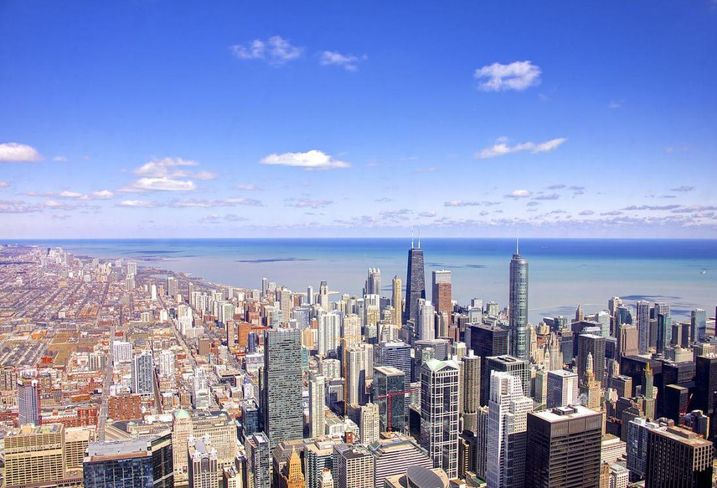Chicago On Leading Edge Of High-Income Renter Trend As More Forgo Homeownership
Chicagoans with annual incomes of $150K and above are increasingly eschewing buying homes, according to a new analysis that found rising home prices and an appetite for lots of amenities are keeping them renting at the trendiest and toniest properties instead.
The number of rich renter households has leapt 97% in Chicago since 2015, according to a new report by RentCafe. The city counts about 51,000 high-income renter households and comes in fourth place in the national ranking of metros with ritzy renters.
RentCafe's analysis of IPUMS data determined there are about 2.6 million U.S. renters making more than $150K per year, an 82% jump between 2015 and 2020. By contrast, the number of renters of all incomes grew 3.2% over the same period, a figure that was skewed by lower-income renters moving in with family members or out of cities at the beginning of the pandemic.
The analysis identified a new class of tenant, "the millionaire renter," reporting households falling into this category tripled between 2015 and 2020.
In Chicago, demand and rents for high-end, Class-A downtown apartments surged over the summer. Rents jumped by almost a fifth over Q2 2022 to an average of $3.55 per SF, according to The Real Deal. Occupancy rates also rose from 91.1% to 94.5% in the same three-month period.
Rents have tempered somewhat in the months since, but only just: Class-A multifamily was going for $3.44 per SF as of Q4 2022, per Crain's Chicago Business, citing data from appraisal and consulting firm Integra Realty Resources. To keep up with demand, Integra predicts developers will complete 2,900 apartments in downtown Chicago this year and 5,600 in 2024 — the most added annually to the downtown market in more than two decades.
"It's where the action is," Integra Senior Manager Ron DeVries told the outlet.
One reason high-income renters might be forgoing homeownership is their desire to be close to their jobs and near public transit versus buying homes farther outside of the city where there is more inventory for prospective homebuyers, said Doug Ressler, manager of business intelligence at Yardi Matrix, who analyzed the RentCafe data.
High-income renters instead are attracted to new multifamily buildings with lots of amenities.
“First of all, they're looking for safety and security,” Ressler told Bisnow. “They're looking for a value proposition cost versus what they pay. Part of it is proximity to transit orientation. These people are very flexible.”
New York, Los Angeles and San Francisco filled the top three hot spots for high-income renters, but Ressler said he expects Chicago's numbers to grow.
Part of the reason will continue to be high home prices, making buying less attractive for well-heeled residents in pricey locations, the study says.
"And this becomes even more obvious when comparing home prices to renter income in the cities with the highest increases in high-income renters," the authors wrote. "In nine of the 10 cities where the number of top-earning renters leapfrogged considerably, growth in home prices was higher than the national average (29%)."
In Chicago, home prices increased by 20% over the study period.
“We believe that the housing stock is certainly not growing,” Ressler said of Chicago's continued strength as a haven for well-off renters. “We think that it will probably increase somewhere around 5 percentage points when you look at the next three years as opposed to what it is now.”

